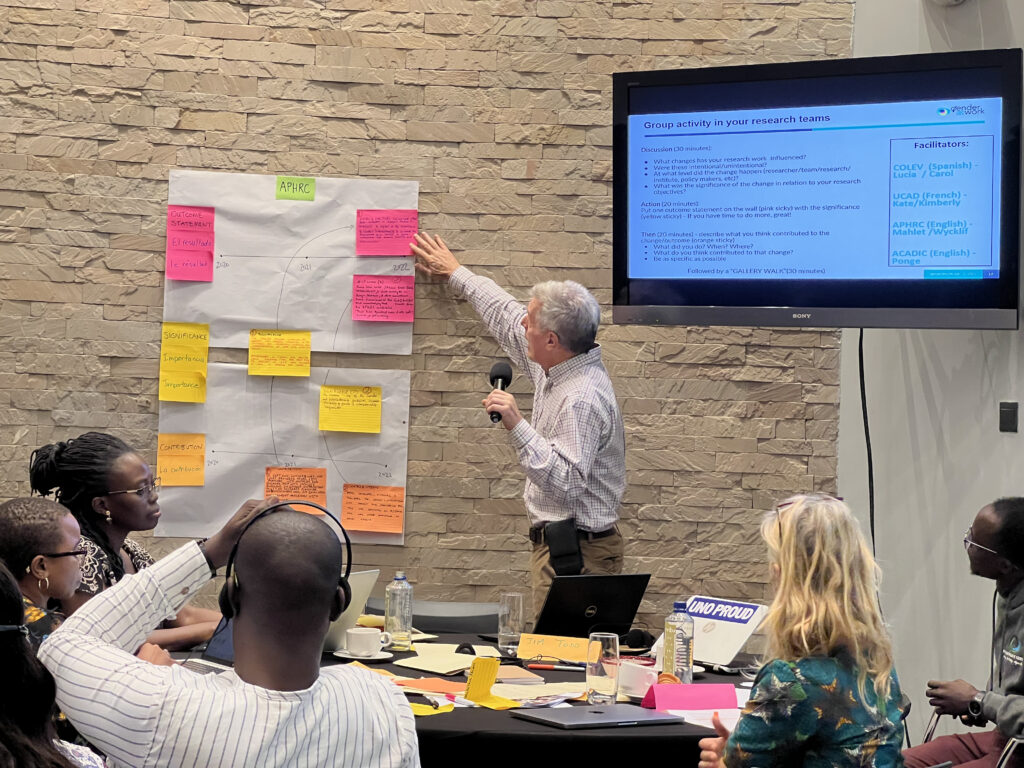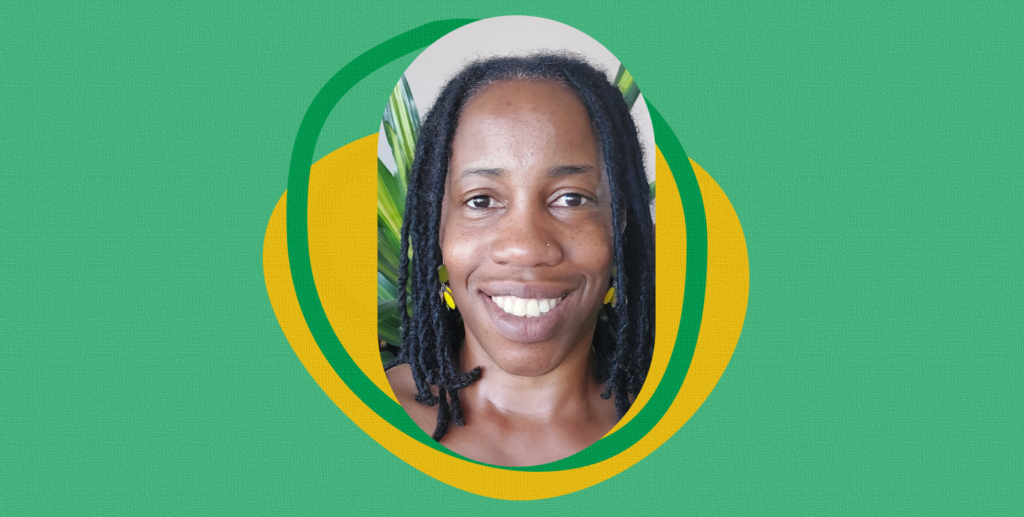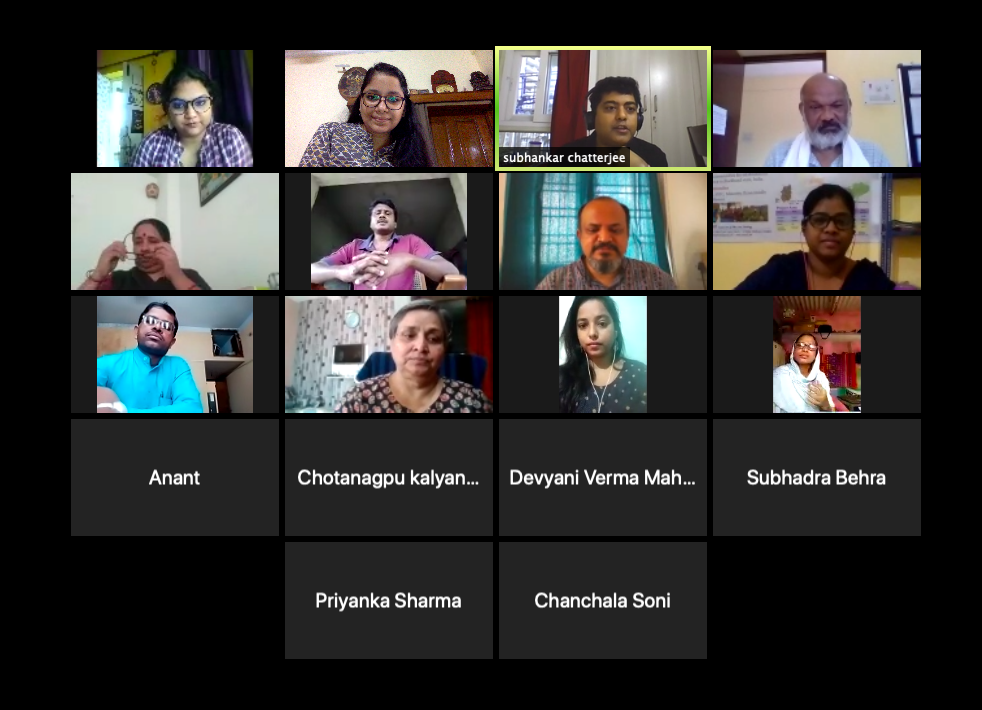Break Out of Your Silo

Jim Todd questions his own positionality as a white privileged male academic who becomes a mentor to a younger female academic of colour. In narrating this experience, he challenges himself and others to listen and learn from our differences and avoid thinking in ‘silos,’ that perpetuate discrimination and biases within academic and research environments.
Introducing madeleine kennedy-macfoy

The same day in March that the World Health Organisation (WHO) declared the COVID-19 outbreak as a global pandemic, my Gender at Work colleagues and I were in a meeting room in Hyderabad. Oblivious to this fact, we were diligently planning for what promised to be a busy year for the next phase of the Project funded by Oak Foundation. After successfully executing phase 1 of the project, our first larger collective planning session for the second phase was scheduled for April 2020. We drafted a broad agenda to be finalized after our discussion with Civil Society Academy (CSA), co-grantee in this project. Needless to say, things did not go as we had planned.
Reflections on the Transgender Day of Visibility

The same day in March that the World Health Organisation (WHO) declared the COVID-19 outbreak as a global pandemic, my Gender at Work colleagues and I were in a meeting room in Hyderabad. Oblivious to this fact, we were diligently planning for what promised to be a busy year for the next phase of the Project funded by Oak Foundation. After successfully executing phase 1 of the project, our first larger collective planning session for the second phase was scheduled for April 2020. We drafted a broad agenda to be finalized after our discussion with Civil Society Academy (CSA), co-grantee in this project. Needless to say, things did not go as we had planned.
Feminists Leading Change: Women in Leadership Roles
Despite some progress in the workplace in the last few years, gender stereotypes are still entrenched in our societies and workplaces. Gender norms, stereotypes and socio-cultural practises can still be very restrictive for women’s participation in the workplace. Currently, women make up less than 10% of executive directorships in FTSE100 companies. Research shows that for women to aspire to rise to leadership positions, role models are vital.
Feminists Leading Change: Renata Avila
Meet Renata Avila, a feminist reimagining Artificial Intelligence to include us all. Expert in digital rights, she studies the politics of data, the evolution of transparency, and their implications on trade, democracy and society, alerting about a phenomenon she describes as digital colonialism. She is a Guatemalan, International Human Rights Lawyer and author. She is currently an HAI Race & Tech Fellow at Stanford University. With more than fifteen years of experience working in cutting edge issues related to technology and society. She co-founded and leads the
Feminists Leading Change: Nitika Pant
Meet Nitika Pant. A woman challenging gender norms and leading those in her community with her, in her revolution. Nitika Pant is a co-founder of SAKAR, India, which was established in 2005. Nitika and her organisation promote gender equality and minority rights. She is especially concerned about the health and education of adolescent girls in Bareilly, India, where she lives.
Feminists Leading Change: Kelsie Joseph
Meet Kelsie Joseph, a young feminist activist leading the change in addressing gender-based violence (GBV) in Trinidad and Tobago. GBV is at its heights in Trinidad and Tobago and young women are demanding their government to prioritize their safety. Kelsie is on the front lines in protests and demanding action. Kelsie is part of the leadership team of the global youth movement: Chalk Back. She is the co-founder of catcallsofUWI (University of West Indies).
Feminists Leading Change: Lina Abou-Habib
Meet Lina Abou-Habib. A woman blazing trails for all in Lebanon, the MENA region and beyond. Lina is currently a Senior Policy Fellow at the Issam Fares Institute for Public Policy and International Affairs (American University of Beirut). She also serves as the Chair of the Collective for Research and Training of Development-Action (CRTD-A) and is a Strategic MENA Advisor for the Global Fund for Women. She is a member of the editorial board of the Gender and Development journal published by Oxfam and Routledge. Abou-Habib was the former Executive Director of WLP Lebanon/Collective for Research and Training on Development–Action (CRTD-A), and is a co-founder and coordinator of the Machreq/Maghreb Gender Linking and Information Project.
Reimagining Capacity Building Programmes in a Virtual World

The same day in March that the World Health Organisation (WHO) declared the COVID-19 outbreak as a global pandemic, my Gender at Work colleagues and I were in a meeting room in Hyderabad. Oblivious to this fact, we were diligently planning for what promised to be a busy year for the next phase of the Project funded by Oak Foundation. After successfully executing phase 1 of the project, our first larger collective planning session for the second phase was scheduled for April 2020. We drafted a broad agenda to be finalized after our discussion with Civil Society Academy (CSA), co-grantee in this project. Needless to say, things did not go as we had planned.
How Transnational Feminist Organizing Offers a Model for the Future
The relegation of all matters related to women and what is referred to as “families” to religious institutions and religious laws has proven to be at the detriment of women and children. In fact, family laws have proven to be hazardous to women and to gender non-conforming.
